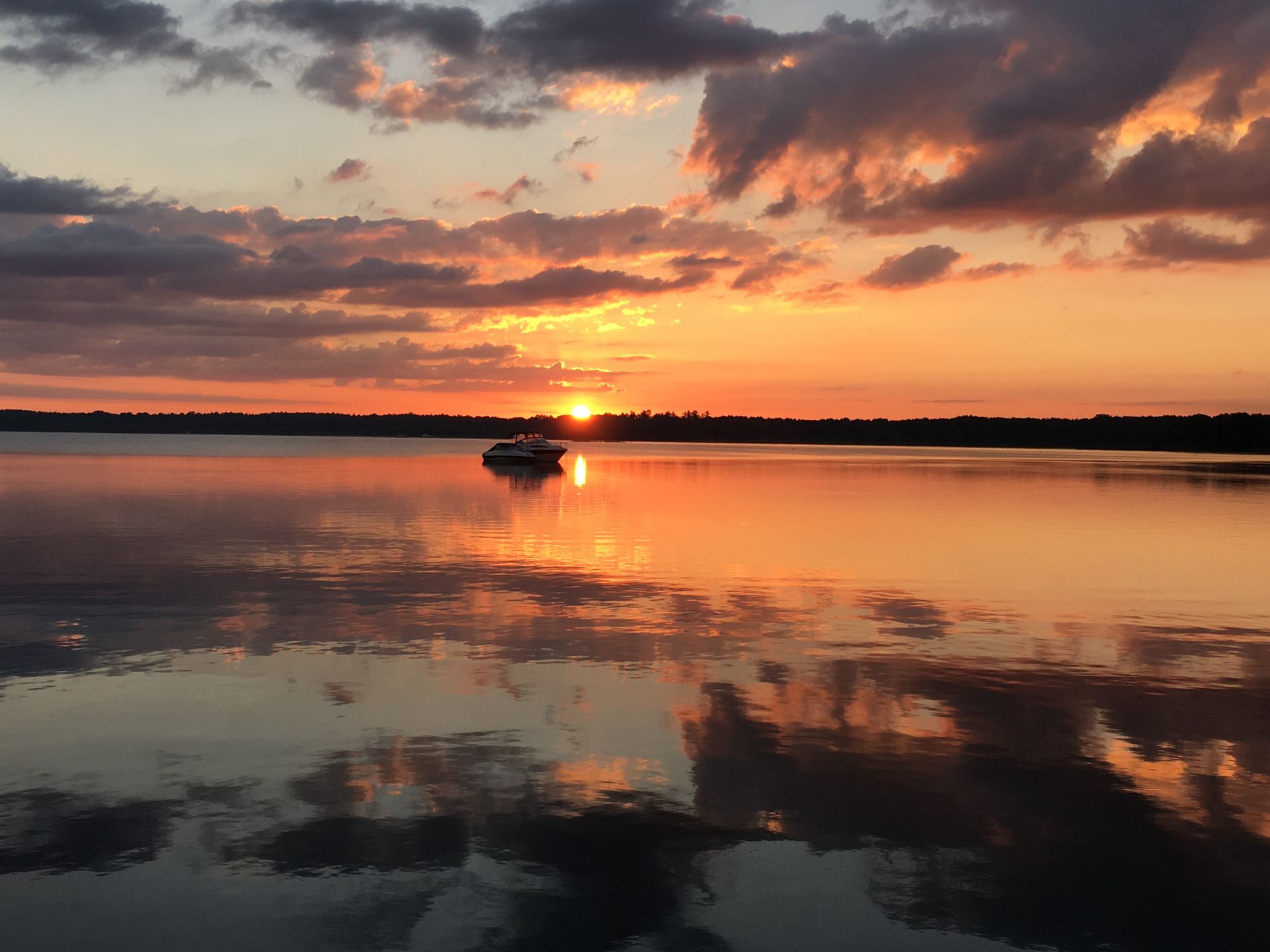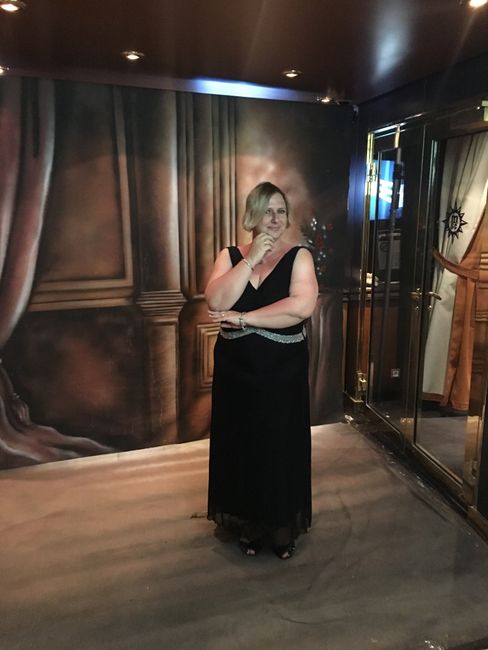With the Mein Schiff 6 from New York to St. Kitts, a Caribbean island in Jamaica.
Publicēts: 12.04.2018
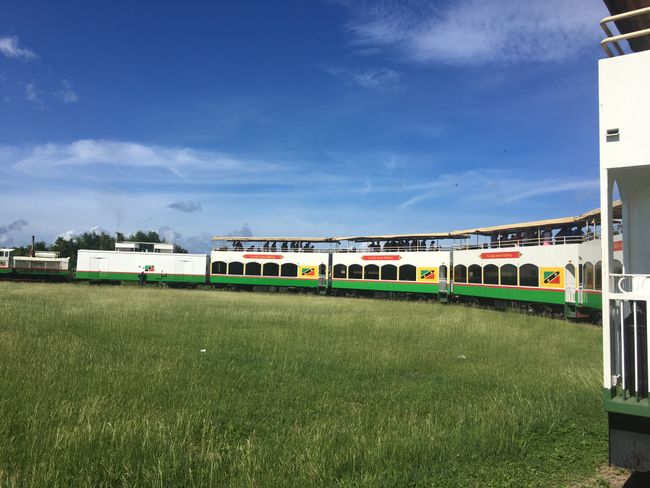
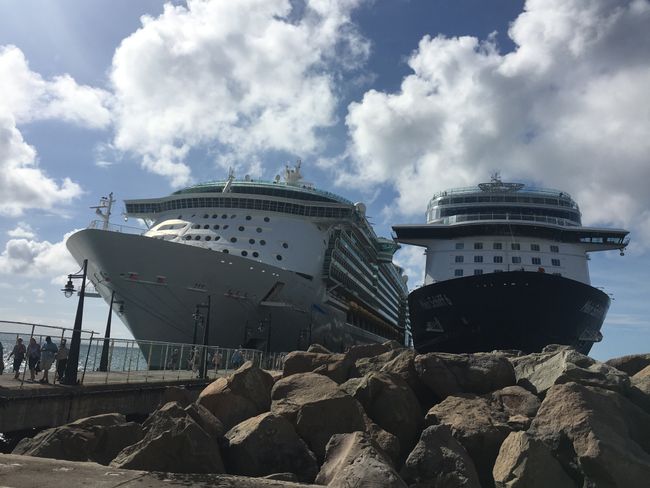
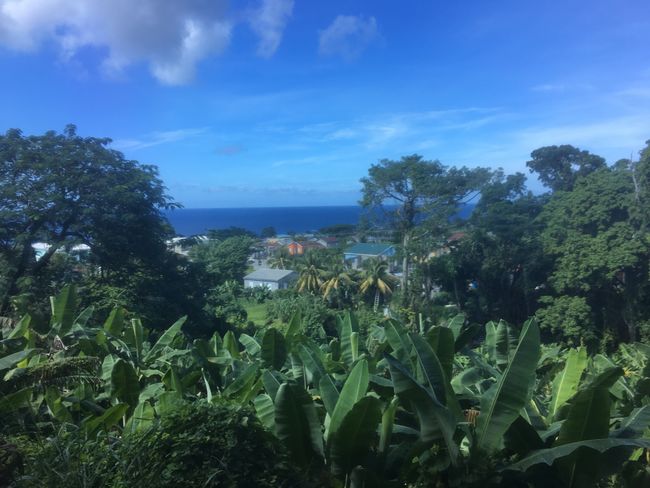
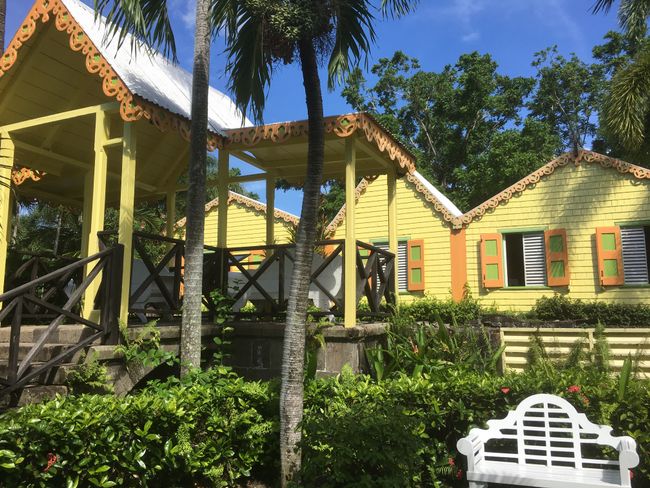
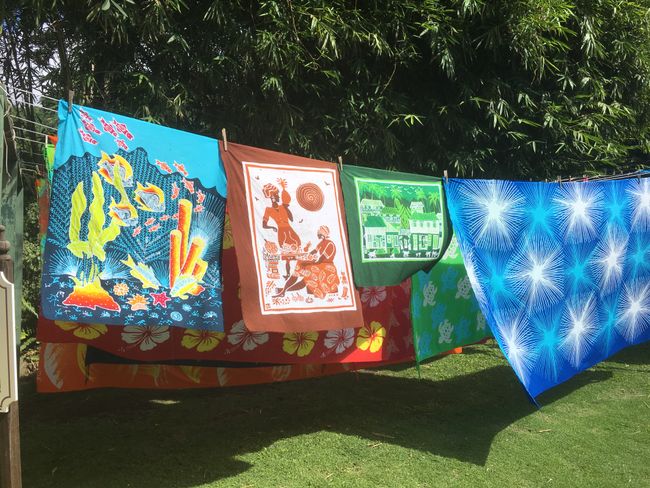
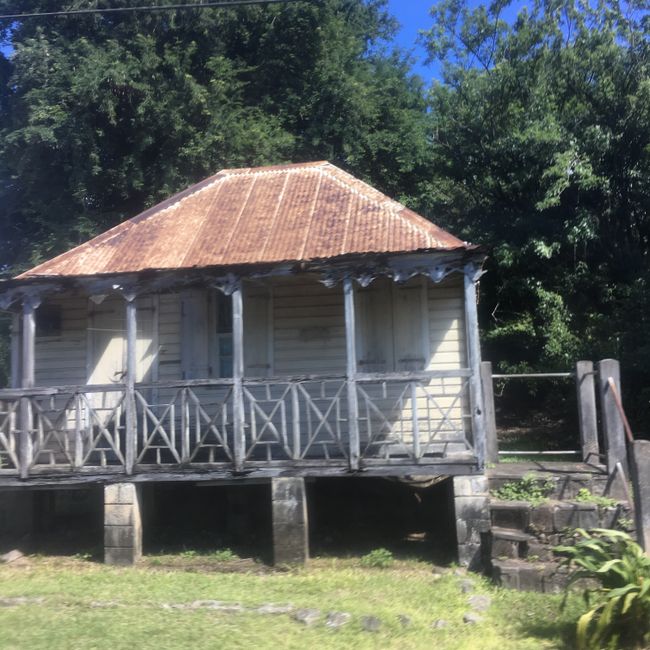
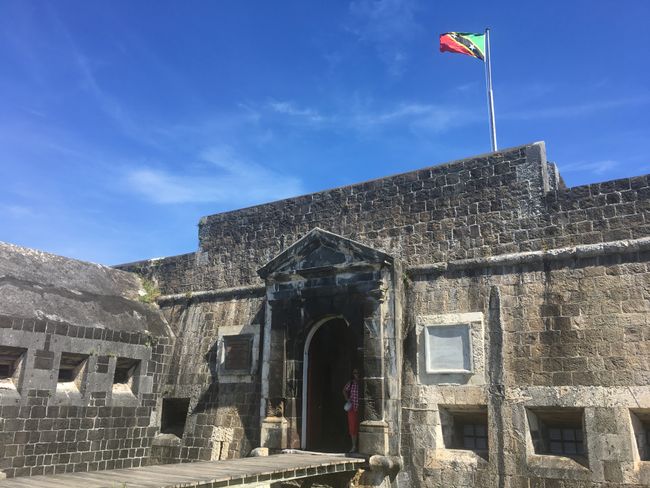
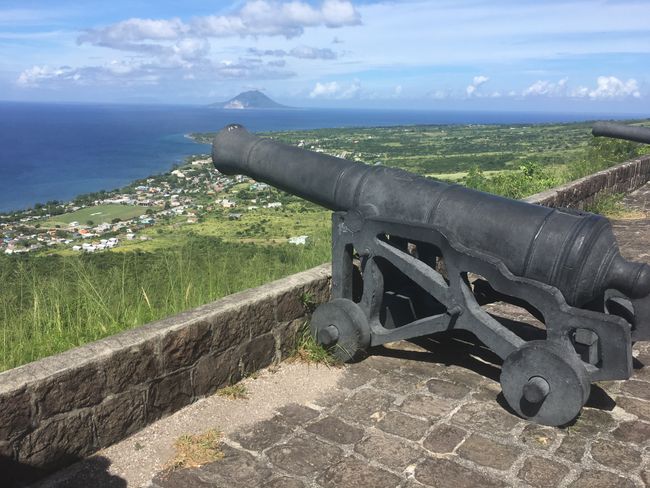
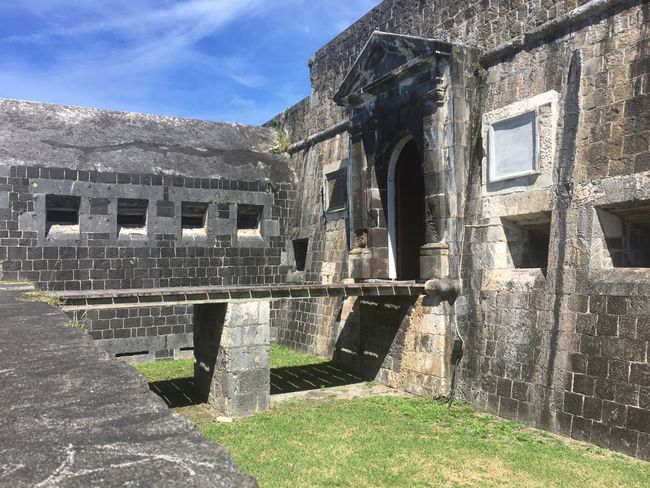
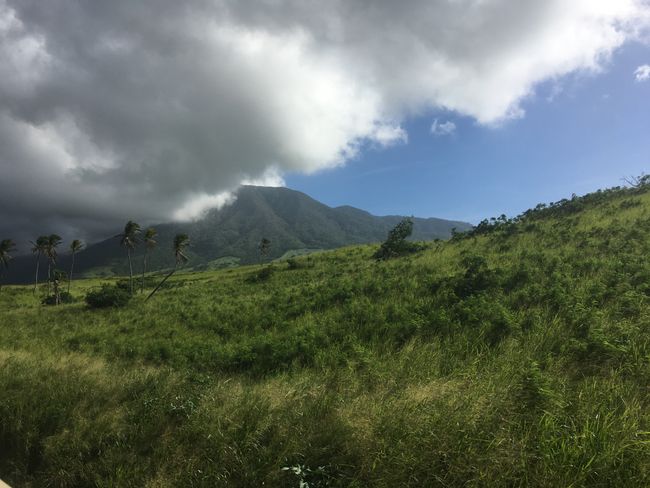
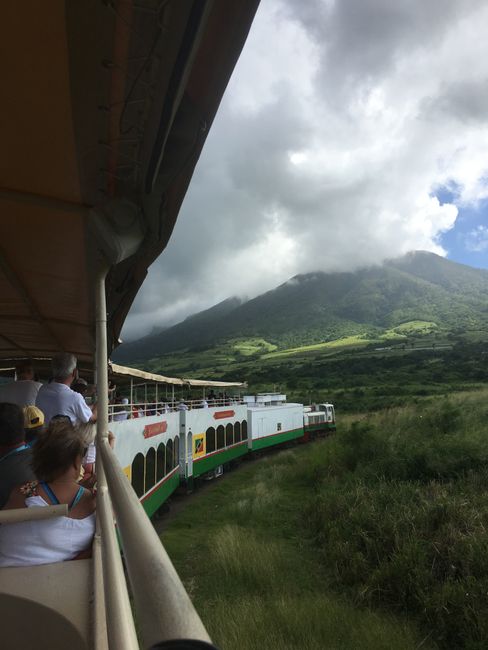
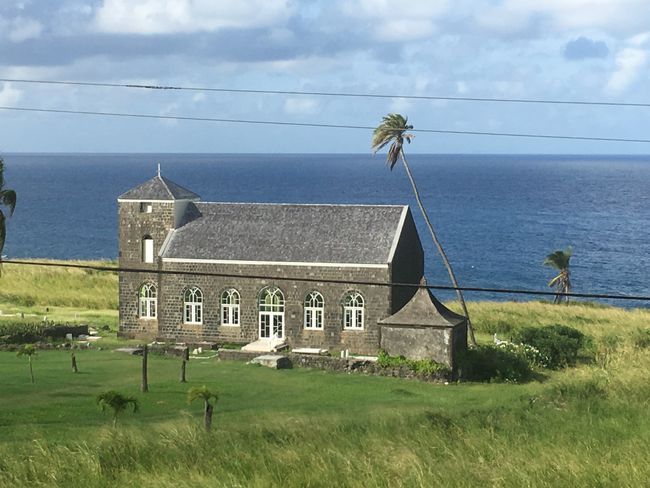
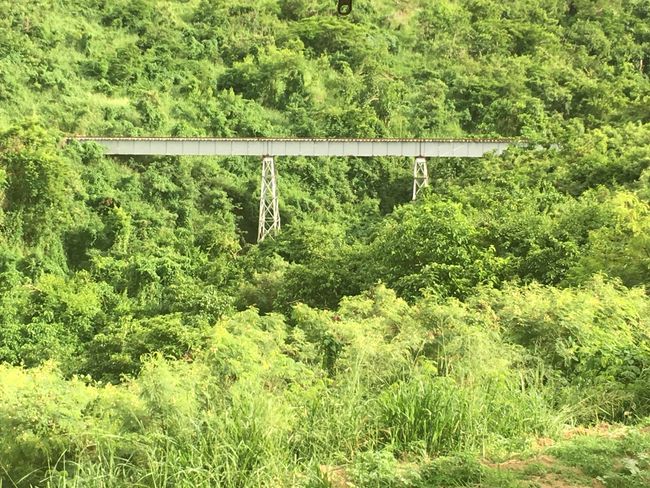
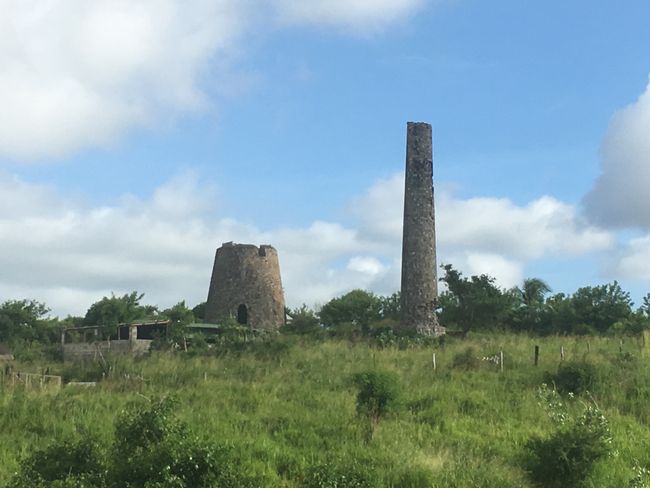
Abonējiet biļetenu
After 2 days at sea, we arrived in the port of our first Caribbean island, St. Kitts, on Monday morning at 07:00. We had booked 2 excursions here. In the morning, the St. Kitts overview excursion and in the afternoon, a tour with the sugar train. The meeting point for the morning excursion was the theater. Since St. Kitts was planned as a tender port, we had to be there 45 minutes before the start. Luckily, we started right away. We were taken to minibuses for 15 people and started the tour. Our driver put in a German cassette, so we learned not only a lot of interesting facts about the area we were passing, but also that St. Kitts has a sister island called Nevis and is also known as the Mother of the Caribbean. Although St. Kitts is only 169 square kilometers in size, it used to have the largest number of sugar cane plantations in the Caribbean. St. Kitts also boasts 3 volcanoes, fortunately they were dormant at the time. In the port of Basseterre, where our Mein Schiff 6 was docked alongside the Independence of the Seas, there were many shops. You could have bought diamonds here very cheaply. Unfortunately, our travel budget did not allow for such expenses. St. Kitts was discovered by Christopher Columbus in 1493. In 1783, it became the possession of Great Britain and thus the first English colony in the Caribbean. Our first stop was at a botanical garden where there is a batik factory. Here, fabrics are still treated with old batik techniques using wax. It was very informative to learn how long it takes for a fabric with several colors to go through the process. The pattern is first applied to the fabric with wax, then it is dyed in cold water, then the wax is removed from the fabric in boiling water and then the whole thing is dried. A batik fan also found its way into our backpack. The journey continued to Brimstone Hill Fortress. The well-preserved fortress is located 200 meters above the sea on a huge volcanic rock. It was expanded by the British over a period of 100 years. From the fortress, you also have a very nice view of the area. We explored the fortress extensively before we had to return to the ship. Here we had 30 minutes to grab something to eat before our next excursion started. Gosch's was perfect for a quick meal. Our hungry stomachs were not only filled with crab bread and shrimp noodles, but the delicious mango creme brulee also filled the last empty corners. The fact that 3 pieces were needed was probably because this sweet sin tastes divine on the Mein Schiff. Strengthened, we were able to start our next excursion. Now a ride on the sugar train was on the program, which was a special experience. The single track railway network was built at the beginning of the 20th century for the transportation of sugar cane and has been operated by a private railway since 2003. The double-decker train drives through sugar cane fields, over bridges and past small villages. We were served a delicious mango drink with rum called Donky. Julia, from the Mein Schiff tour guide team, translated the explanations of the local train attendants. A folk dance group went from carriage to carriage and sang traditional songs. Wherever we passed with our train, we were greeted with joyful waving and shouting. From the train, we were able to admire the landscape, the volcanoes, old sugar mills, and fields. After about 90 minutes, the beautiful journey unfortunately came to an end and the train pulled into the station near the port.
Continuation: https://vakantio.de/tourdesilke/mit-der-mein-schiff-6-von-new-york-nach-jamaika-antiqua-schwimmen-mit-rochen-und-beachhopping
Abonējiet biļetenu
Atbilde
